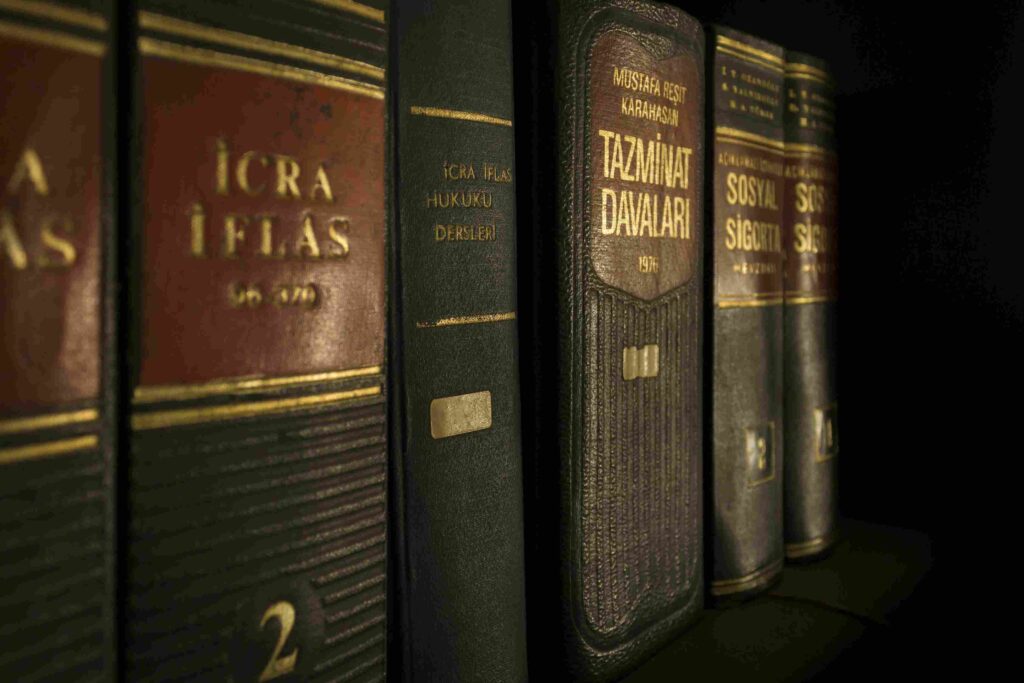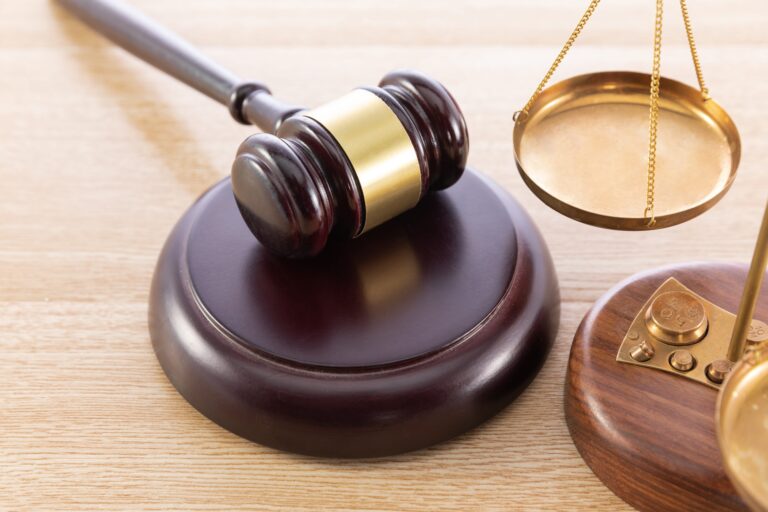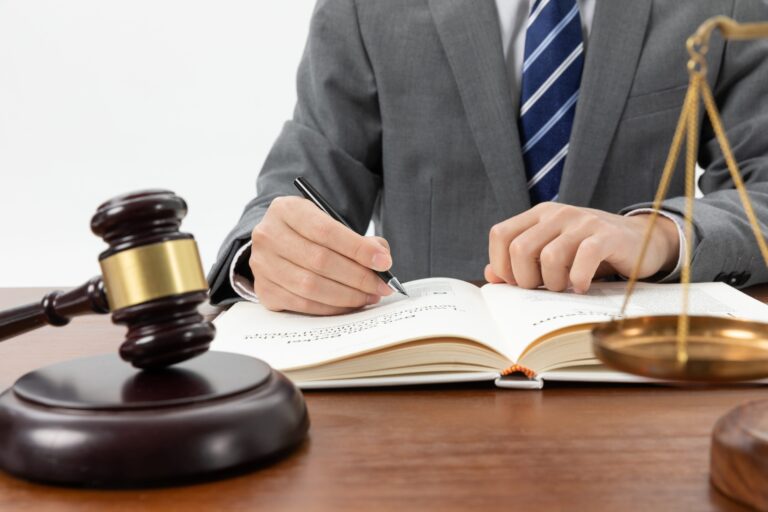Introduction
The Supreme Court decided an amazing 52,220 cases this year. In recent memory, it was also the year with the greatest number of decisions from the Constitution Bench. Important topics including political rights, personal freedom, freedom of speech, the division of governmental functions, and the essence of federalism were covered in the cases. Several rulings were seen as indicators of the state of democracy and the judiciary’s independence.
In certain notable instances, the Court exhibited prompt and decisive action, such as granting Rahul Gandhi’s plea for a defamation lawsuit stay to address Parliament. Similarly, in response to evidence tampering, it swiftly awarded bail to advocate Teesta Setalvad, criticizing the Gujarat High Court’s decision as “flawed.” Additionally, it provided bail relief to activists implicated in the Bhima Koregaon case, offering respite. However, the Court’s pace was sluggish in addressing other pressing matters. Notably, activist Umar Khalid remains incarcerated without trial, and there’s uncertainty regarding the adjudication of the Pegasus malware case.

Constitutional Bench Judgements of The Supreme Court
1. Fundamental rights lie not only against the State, but also against non-State actors. Case Title: Kaushal Kishore v. State of Uttar Pradesh and ors
A five-judge panel ruled that non-State actors can also be subject to basic rights enforcement in addition to the State.
Two incidents of contentious remarks made by ministers against crime victims served as the impetus for this case. The victims contend that these statements encroached upon their fundamental rights to personal liberty and life as guaranteed by Article 21 of the Constitution.
The Court ruled in a 4:1 ruling that the only way to limit someone’s ability to express themselves freely is to impose reasonable limitations by Article 19(2) of the Constitution. The Court determined that additional restrictions couldn’t be imposed atop the current grounds, affirming this as a comprehensive list.
2. Challenge to the Abrogation of Article 370 In Re: Article 370 of the Constitution
Chief Justice D.Y. Chandrachud headed a Constitution Bench that upheld the Central Government’s decision to revoke the former state of Jammu and Kashmir’s (J&K) special status on December 11.
Parties contesting the abrogation said that the Union had violated J&K’s constitutional guarantee and the state’s right to internal sovereignty under Article 370 of the Indian Constitution. Additionally, they argued that the clause was unchangeable and could not be changed following the J&K Constituent Assembly’s dissolution. On the other hand, the Union asserted that the clause was only transitory and that its repeal had guaranteed J&K’s full integration with India.
Since Article 370 was placed under Part XXI, the Court agreed with the Union that it was a provision that would only last temporarily. Additionally, it maintained the legitimacy of the presidential orders that nullified Article 370, concluding that they were a lawful and proper use of authority. However, the verdict declared the presidential order amending Article 367 unconstitutional. The Solicitor General’s submission that J&K will regain its statehood in due course led the Court to decline to pronounce on the legality of the state’s reorganization.
The Supreme Court Observer covered the case’s 16 days of hearings in great detail.
3. Maharashtra political crisis Subhsash Desai v Principal Secretary, Governor of Maharastra and ors.
On May 11, a five-judge bench concluded that the Governor’s directive for a floor test to ascertain the support for the incumbent Chief Minister, Uddhav Thackeray, contravened the law. The governor was justified in doing so since he lacked objective material. A seven-judge bench was asked to consider whether the Speaker could rule on disqualification petitions even though there was a notice to have them deleted.
In June 2022, a faction of the Shiv Sena, led by the current Chief Minister Eknath Shinde, staged a rebellion against Thackeray’s leadership. In retaliation, Thackeray used the Deputy Speaker to send out 16 notifications of disqualification. The Deputy Speaker was then the target of a no-confidence resolution from the dissident MLAs, which he rejected due to its lack of veracity. The Supreme Court heard a challenge to the disqualification notices.
The Governor soon ordered a floor test, but Thackeray quit before it could take place. In response to the rebellion, the Governor extended an invitation to Shinde to assume leadership of the government. However, Subhash Desai, the General Secretary of Thackeray’s faction, contested both the Governor’s invitation to Shinde and the election of the new Speaker, taking the matter to the Supreme Court.
Though Thackeray’s voluntary departure could not be undone, the five-judge Bench ruled that the call for the floor test was unlawful. The decision was left to the Speaker to determine through proper procedures whether the rebellion constituted defection or not.
Another notable observation by the Court was regarding the ruling in Nabam Rebia & Bamang Felix v. Deputy Speaker (2016), which appeared to overlook the potential misuse of the directive. MLAs facing disqualification could exploit the situation by simply filing a notice of intention to remove the Speaker, thereby prolonging the resolution of their disqualification petitions. Despite the Court’s directive for the Speaker to adjudicate on the disqualification petitions “within a reasonable time”, a verdict is still pending. Upon being notified of this delay by the Thackeray faction, the Supreme Court initially granted the Speaker an extension until December 31, 2023, further extending it to January 10, 2024.
4. Validity of unstamped arbitration agreements: Journey from illegality to recognition Case Title: NN Global Mercantile Pvt Ltd v. Indo Unique Flame Ltd & ors; In Re: interplay between Indian Stamp Act and Indian Arbitration Act
Unstamped arbitration agreements are unenforceable, according to a ruling made by a five-judge bench in April. In December, a seven-judge bench overturned this.
The seven-judge Constitution Bench ruled that although unstapled arbitration agreements are unenforceable, their unstapled status does not make them void ab initio (void from the start).
The Court’s conclusion highlighted that the omission to pay stamp duty renders a document inadmissible rather than void, emphasizing that the deficiency can be rectified.
It further stated that the arbitral panel, not the courts, will determine whether or not the arbitration agreement has been stamped.
5. No legal recognition for same-sex marriages, civil unions Case Title: Supriyo @ Supriya Chakraborty and anr v. Union of India.
In October, the Supreme Court declined to recognize same-sex unions as legally binding, with the majority ruling that the legislature should be tasked with granting non-heterosexual couples the ability to form a civil union, adopt a child, or be married.
All the judges were unanimous in holding that there is no unqualified right to marriage and that same-sex couples cannot claim this as a fundamental right.
The Court also unanimously turned down a challenge to provisions of the Special Marriage Act.
6. The Lieutenant Governor and control over the NCT of Delhi Government of NCT of Delhi v Union of India
On 11 May, a Constitution Bench led by CJI D.Y. Chandrachud held that the Government of the National Capital of Delhi (NCTD)—and not the Lieutenant Governor (LG)—controls the national capital’s civil servants and day-to-day administration.
The Delhi Legislative Assembly can enact legislation covering any topic in the State List of the Seventh Schedule of the Constitution, the Bench unanimously decided, except land, public order, and law enforcement, which are specifically prohibited by Article 239AA of the Constitution. This suggests that Entry 41 of List II (State Public Services; State Public Service Commission) grants the Delhi Legislative Assembly the authority to legislate. The Bench noted that “the government’s responsibility towards the legislature, as well as the public, is diluted if it is not able to control and hold to account the officers posted in its service.”
The court emphasized that the Delhi government would wield legislative and executive powers over “services” such as the Indian Administrative Service and joint cadre services, even if officials were not directly recruited by it, they would still be answerable to the state government.
In accordance with the verdict, Article 239AA should be interpreted to promote the principles of representative democracy while upholding federalism.
Following the judgment, the President issued an ordinance on May 19, just one week later, reclaiming full authority over “services” from the Union administration. This ordinance established the National Capital Service Authority, empowered to propose certain senior government employee transfers and postings.
The Parliament passed an amending Act in August to replace the Ordinance. The Delhi Legislative Assembly’s ability to enact laws about “services” was reinstated by the National Capital Territory of Delhi (Amendment) Act, 2023. It was decided to keep the clause establishing the National Capital Service Authority.

7. Election Commission Appointments Anoop Baranwal v Union of India
On March 21, a significant alteration to the procedure for selecting members of the Election Commission of India (ECI) was implemented by a five-judge Constitution Bench led by Justice K.M. Joseph. The Bench established a committee made up of the Prime Minister, the Leader of the Opposition in the Lok Sabha, and the Chief Justice of India in order to emphasize the significance of an independent Election Commission. According to Article 324(5), the President will decide on the terms of service for ECI members, “subject to the provisions of any law made by Parliament.”
The Court read the phrase “Subject to the provisions of any law made by Parliament” to suggest that the executive branch was not the only entity with the authority to designate ECI members. Given the prolonged delays and inactivity in the legislature concerning the drafting of legislation related to the appointment of Election Commission of India (ECI) members, the Court emphasized that its directives would persist until Parliament enacts appropriate legislation.
The Chief Election Commissioner and Other Election Commissioners (Appointment, Conditions of Service and Term of Office) Bill, 2023 was tabled in the Rajya Sabha by the Union government on August 10. The CJI is not included in the “selection committee” that the Bill proposes. The committee will include a member of the Union cabinet chosen by the prime minister, in addition to the leader of the opposition in the Lok Sabha and the prime minister. The proposed Bill seeks to revert to the status quo ante established prior to the Supreme Court’s ruling in Anoop Baranwal, reinstating the Executive’s final authority in appointing Election Commission of India (ECI) members, with a majority representation from the Union government.
On 12 December, the Rajya Sabha passed the Bill. Days later, on 21 December, the Lok Sabha passed it with a voice vote.
8. Marriages can be dissolved by the apex court on grounds of irretrievable breakdown Case Title: Shilpa Sailesh v. Varun Sreenivasan
In a landmark decision in May, a Constitution Bench declared that it possesses the authority to dissolve a marriage when there exists an irretrievable breakdown of the marital relationship, utilizing its powers under Article 142 of the Constitution.
A panel of judges, including Sanjay Kishan Kaul, Sanjiv Khanna, Abhay S. Oka, Vikram Nath, and JK Maheshwari, decided that under certain situations, the six-month cooling-off period outlined in the Hindu Marriage Act can be waived.
Importantly, the Court emphasized that divorces may be granted through this process even if one party opposes the decision, marking a significant departure from traditional divorce proceedings. Nonetheless, the Bench maintained a prior ruling that stated parties wishing to dissolve their marriage may not immediately petition the High Courts or the Supreme Court.
9. Group of Companies Doctrine in Arbitration
In December, the Supreme Court’s Constitution Bench established that arbitration proceedings in India would adhere to the group of companies concept, marking a pivotal development in the country’s arbitration framework.
According to the “group of companies” theory, a business that is not a signatory to an arbitration agreement but belongs to the same group of businesses that did sign the agreement will be obligated by it.
A bench consisting of Chief Justice of India (CJI) DY Chandrachud, Justices Hrishikesh Roy, PS Narasimha, JB Pardiwala, and Manoj Misra concluded that non-signatory parties cannot be considered strangers to the arbitration dispute because of their relationship with the signatory and involvement in commercial activities.
10. Supreme Court’s Power To Directly Grant Divorce Shilpa Shilesh v Varun Sreenivasan
On May 1, a five-judge Constitution Bench presided over by Justice S.K. Kaul handed down a landmark ruling affirming the Court’s prerogative to dissolve a marriage that has irreversibly collapsed, utilizing its inherent authority enshrined in Article 142 of the Constitution. The Hindu Marriage Act, 1955, the Special Marriage Act, of 1954, and the Indian Christian Marriage Act, 1872, did not follow the rules set forth by the Court. The “fault theory,” which holds that one of the married parties must establish fault, was the foundation of the family law system in the past.
The Bench ruled that the Court may use its authority under Article 142 to provide “complete justice” to the parties concerned if it is “fully convinced and satisfied that the marriage is unworkable, emotionally dead, and beyond redemption.”
The Supreme Court has granted divorces before, not only in the Shilpa Sailesh case. This is because Article 142 grants such a power. This ruling, however, is notable for elucidating conflicting precedence about the application of “irretrievable breakdown” as a basis for divorce. Additionally, the ruling delineated, for the first time, the factors that the Court must weigh before determining whether an “irretrievable breakdown” of the marriage has indeed taken place.
This covers how long it has been since the parties last lived together, the specifics of the accusations, attempts to resolve conflicts through other court orders, and the length of the couple’s separation.



